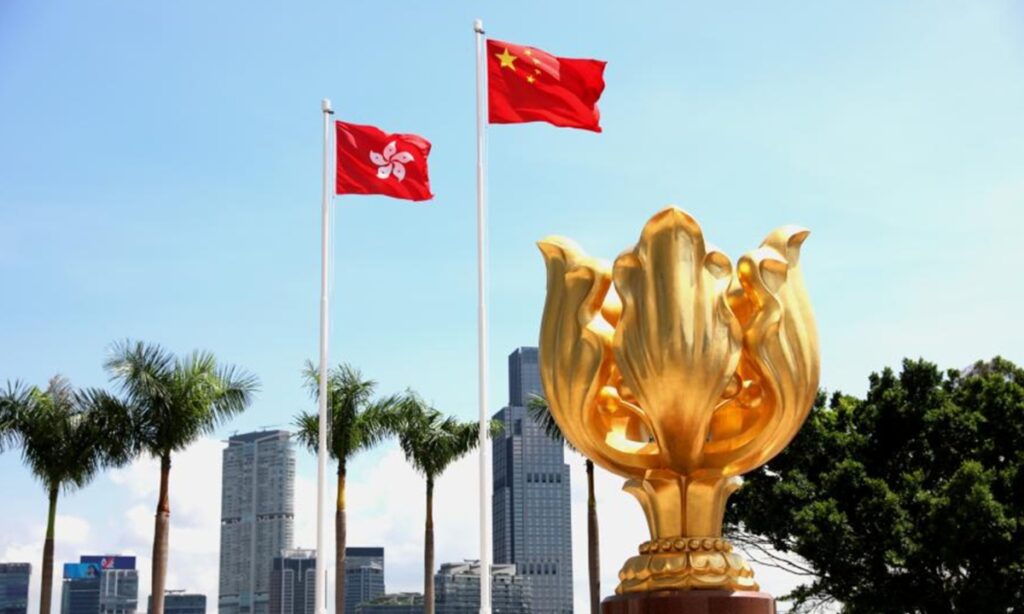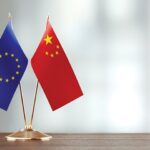Article 23 of the Basic Law stipulates that the HKSAR government shall enact laws on its own to prohibit any act of treason, secession, sedition or subversion against the central government. However, after Hong Kong’s return to the motherland, legislation for Article 23 of the Basic Law has remained incomplete, making Hong Kong a weak link in national security and an easy target for hostile foreign forces to disrupt public order and jeopardize social and economic interests.
Western interference in Hong Kong’s affairs has for a long time been evident. Take the US in recent years as an example. The US signed the legislation of the so-called Hong Kong Human Rights and Democracy Act in November 2019, which paints criminal activities as pursuits of human rights and democracy when the truth is violent criminals rampantly smashed facilities, set fire, bullied and attacked innocent civilians, forcibly occupied university campuses, mobbed young students, and assaulted police officers in a premeditated way. Last month, US lawmakers pushed the Biden administration to sanction 49 city officials, judges and prosecutors. The aim is blatant – to bolster anti-China, extremist and violent radicals who attempt to disrupt Hong Kong, damage Hong Kong’s prosperity and stability.
The central government grants the HKSAR certain legislative power on safeguarding national security, which is the arrangement under “one country, two systems.” However, it does not change the fact that national security legislation is essentially within the purview of the central government, nor does it prevent the central government from developing a legal system and enforcement mechanisms for safeguarding national security in light of the actual situation and needs, Li Xiaobing, an expert on Hong Kong, Macao and Taiwan affairs from Nankai University, told the Global Times.
The black-clad riots in Hong Kong in 2019 pushed the city into dangerous abyss. Consequently, the national security law for Hong Kong (NSL) was passed in 2020, to address secession, subversion, terrorist activities and collusion with foreign forces.
It is a national level strategic legislation, Li said. However, since the law of the HKSAR has its foundation in the English common law system, more legal details are needed to make it to judicial and administrative level, to ensure smoother implementation of the NSL, that’s why we need to complete Basic Law Article 23 and put it in place, Li added.
The NSL focuses on the most serious and urgent national security risks faced by Hong Kong, but it does not cover all areas, such as cybersecurity and financial security, Lau Siu-kai, a consultant from the Chinese Association of Hong Kong and Macao Studies who is also a senior policy advisor, told the Global Times.
That being said, the NSL is a big umbrella that safeguards security in the HKSAR, while more detailed security protections are needed from Article 23. Only when Article 23 is completed and enacted, a double-layer, multidimensional legal system will be established in Hong Kong, Li said.
Chow was one of the most prominent faces in the black-clad riots in 2019. She was arrested by the police’s national security department in August, 2020, and is suspected of running an organization with two other individuals which was pushing for foreign sanctions on Hong Kong, violating the NSL. She was separately sentenced to 10-month imprisonment on November 23, 2020, on charges related to a siege of police headquarters during the 2019 anti-government protests. She is now on bail. In September, Chow obtained a passport and left Hong Kong to Toronto, Canada, but she is required to report to the police in December. Yet on December 3, she announced that she will skip bail, and won’t be returning.
China is under the rule of law, and Hong Kong is a society ruled by law. The rights and interests of Hong Kong residents enjoyed in accordance with the law are fully protected, Chinese Foreign Ministry spokesperson Wang Wenbin said on Monday in response to Chow’s decision. At the same time, no one has any extrajudicial privileges, and any illegal and criminal act is bound to be punished by law, Wang added.
It is uncertain whether external intelligence forces have established contact with Chow or encouraged her to make the decision. However, some external forces may now see her as someone with political value and will likely encourage her to participate in attacks against Hong Kong, Lau told Global Times.
Chow’s latest decision is a deliberate action to violate the law. It also illustrates how crucial it is for the HKSAR to strengthen its legal framework to prevent individuals like Chow from evading justice, Li said.




